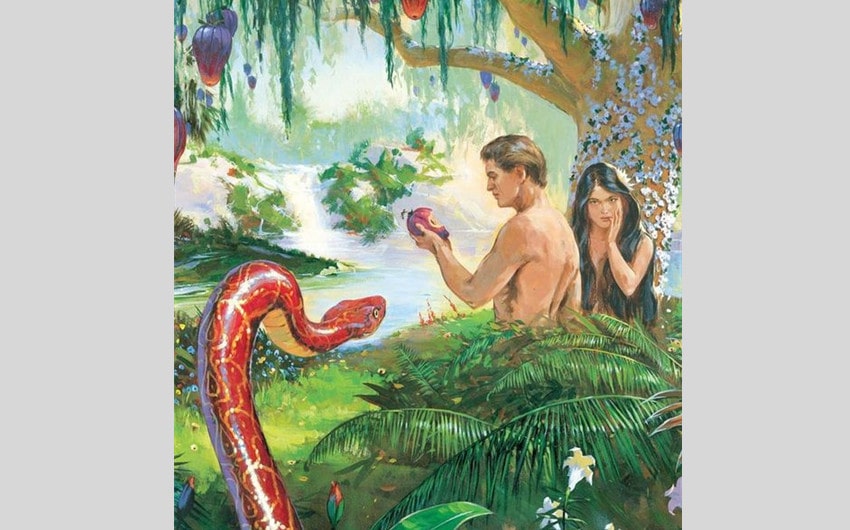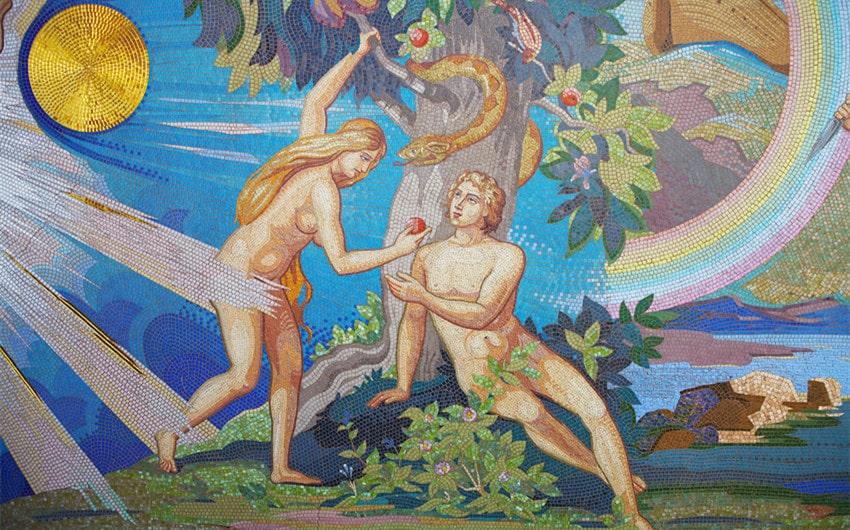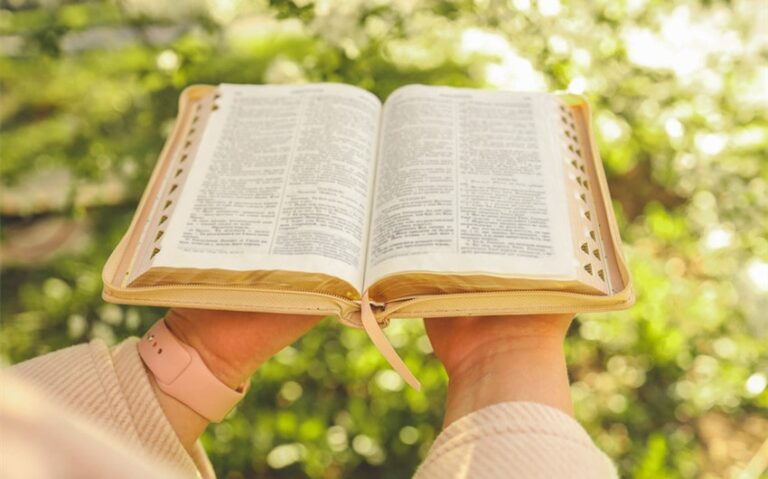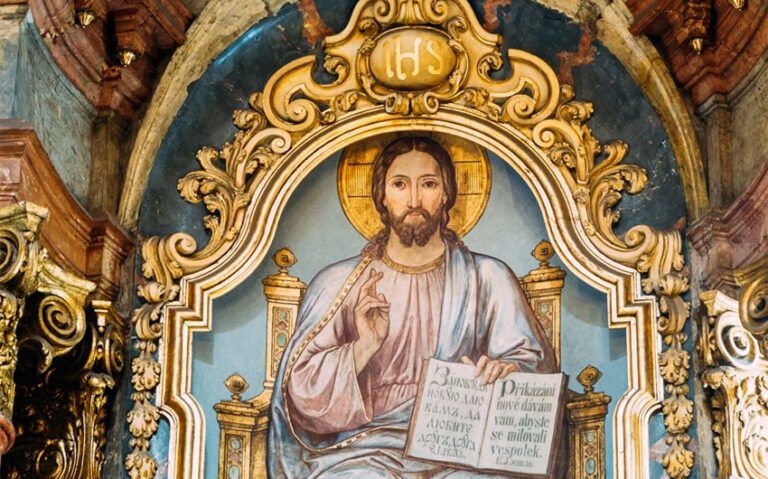Who Was the First Person on Earth? A Religious Perspective
Who was the first person on Earth? It’s a question that has been asked for centuries, connecting us to our deepest curiosity about human origins. For those who follow religious traditions, the answer is clear: Adam, created by God, is believed to be the first person on Earth, with Eve as the first woman. Their story not only explains the beginning of humanity but also reflects timeless lessons about life, relationships, and purpose. Let’s explore the significance of Adam and Eve in the story of humanity.
Adam: The First Person in Abrahamic Faiths

Image source: Pinterest
In the Abrahamic religions—Judaism, Christianity, and Islam—Adam is recognized as the first human being created by God. His story is deeply embedded in religious texts, serving as a foundational narrative for understanding human origin, morality, and the relationship between humanity and the divine.
Creation of Adam in the Bible (Judaism and Christianity)
According to the Bible, Adam was the first man, created by God from the dust of the Earth. This creation is described in the Book of Genesis, where God breathes life into Adam, making him a living being. Adam is placed in the Garden of Eden, a paradise where he lives in harmony with nature and God.
As the first man, Adam is given the task of naming all the animals and is responsible for taking care of the garden. The Bible emphasizes that Adam was made in God’s image, highlighting the divine connection between humanity and the Creator.
Creation of Eve and the Role of Partnership
While Adam was the first person, the story soon introduces Eve, the first woman, who was created from Adam’s rib to be his partner. This part of the narrative emphasizes the importance of companionship and balance in human life. Together, Adam and Eve symbolize the beginning of the human race, and their relationship sets the stage for many core teachings about family, morality, and obedience in religious traditions.
Adam in the Quran (Islam)
In Islam, Adam is also recognized as the first human and the first prophet. The Quran provides a similar, though not identical, account of Adam’s creation. God forms Adam from clay and breathes His spirit into him, giving him life. Adam is given knowledge by God, and the angels are commanded to bow to him in recognition of his unique role as the first human. The story of Adam in the Quran emphasizes his status as the first prophet, tasked with guiding humanity and teaching the principles of obedience and worship to God.
Adam’s Significance in Abrahamic Traditions
Across all three Abrahamic faiths, Adam’s creation marks the beginning of humanity. His story represents more than just the first human; it reflects essential teachings about human nature, free will, and the consequences of disobedience. The story of Adam’s fall from grace, after eating from the Tree of Knowledge of Good and Evil, highlights themes of sin, forgiveness, and redemption, which are central to Jewish, Christian, and Islamic beliefs.
Eve: The First Woman

Image source: Pinterest
Eve is a central figure in the creation stories of Judaism, Christianity, and Islam, known as the first woman and the partner of Adam. Her role as the mother of humanity highlights important themes about human relationships, responsibility, and morality.
Eve’s Creation in the Bible (Judaism and Christianity)
In the biblical account, after creating Adam, God declared it was not good for man to be alone. To create a suitable companion, God caused Adam to fall into a deep sleep and formed Eve from one of his ribs. This act symbolizes the deep connection between man and woman, emphasizing the importance of companionship and partnership in human life.
Together, Adam and Eve were placed in the Garden of Eden, where they lived in harmony with nature. Eve’s creation is seen as completing the human experience, with her role as Adam’s partner reflecting the balance between genders in religious teachings.
Eve’s Role in the Fall of Man
Eve is perhaps best known for her role in the Fall of Man, a pivotal moment in the story of humanity. Tempted by the serpent, Eve ate the forbidden fruit from the Tree of Knowledge of Good and Evil and gave some to Adam. This act of disobedience led to their banishment from the Garden of Eden and introduced suffering, death, and labor into human life.
While Eve’s role in the Fall has often been criticized, many religious interpretations emphasize that Adam and Eve shared responsibility for their actions. The story illustrates the human tendency to make mistakes and the consequences that follow, while also highlighting themes of repentance and redemption.
Eve in the Quran
In Islam, Eve (known as Hawwa) is also regarded as the first woman, created by God to be Adam’s companion. Islamic tradition shares a similar narrative of the Fall, where both Adam and Eve are tempted by Satan to eat from the forbidden tree. However, unlike in some interpretations of the Bible, Eve is not solely blamed for the disobedience.
Both Adam and Eve bear equal responsibility for their actions, and after they repent, they are forgiven by God. This portrayal emphasizes the Islamic values of personal accountability and the importance of seeking forgiveness.
The Legacy of Eve
Eve is considered the “mother of all living” in both the Bible and the Quran, signifying her role as the matriarch of humanity. Her story has had a lasting influence on religious and cultural understandings of women, relationships, and human nature.
Over time, various interpretations have emerged, some focusing on Eve’s role in the Fall, while others emphasize her importance as a figure of equality and partnership. In modern times, Eve’s story is often revisited through a lens of empowerment, seeing her as a figure who represents the complexities of human life—temptation, choice, and growth.
Importance of Adam and Eve’s Story
The story of Adam and Eve has played a huge role in shaping how many people view life, relationships, and humanity’s connection to God. Across Judaism, Christianity, and Islam, their story is a foundation for understanding key ideas about right and wrong, responsibility, and what it means to be human. Here’s why their story matters:
1. Human Origins and Connection to God
For believers, Adam and Eve’s story explains the beginning of humanity. Adam is seen as the first man created by God, and Eve as the first woman, making them the parents of all human beings. Their creation shows that humans are special because God made them in His image, meaning they have a close relationship with God and a unique place in the world.
2. The Meaning of Free Will
The story of Adam and Eve is also important because it talks about free will, or the ability to make choices. God gave Adam and Eve the freedom to live in the Garden of Eden with one rule—not to eat from the Tree of Knowledge of Good and Evil. When they broke this rule, it showed that humans can choose their actions, but those choices have consequences. This idea of free will is central to many religious teachings because it explains why people must take responsibility for their decisions.
3. The Lesson of Temptation and Sin
The serpent tempting Eve to eat the forbidden fruit is one of the most well-known parts of the story. It teaches the lesson that temptation is a part of life, and giving in to it can lead to negative outcomes. Adam and Eve’s disobedience is often seen as the first sin, introducing hardship into the world. Their story shows how humans sometimes make mistakes and stray from what’s right, but it also opens the door to understanding the need for forgiveness and growth.
4. The Importance of Partnership
Adam and Eve’s relationship is often used to highlight the importance of partnership. Eve was created to be Adam’s companion, and their union symbolizes the balance between man and woman. Their story lays the groundwork for the concept of marriage and family in many cultures and religious traditions. It emphasizes that humans are meant to live in relationships with one another, helping and supporting each other through life.
5. A Story of Redemption
Even though Adam and Eve made a mistake, their story doesn’t end with punishment. In many religious teachings, their story is also about forgiveness and the chance for redemption. While they were expelled from the Garden of Eden, God didn’t abandon them. This part of the story is important because it shows that, despite human errors, there is always a path to make things right again through repentance and God’s mercy.







